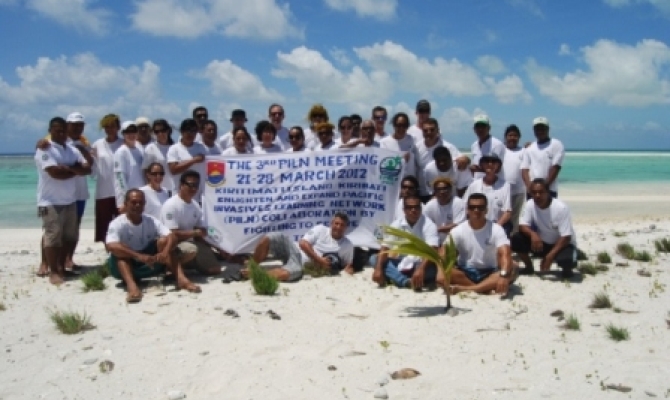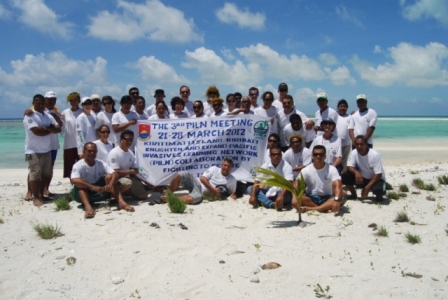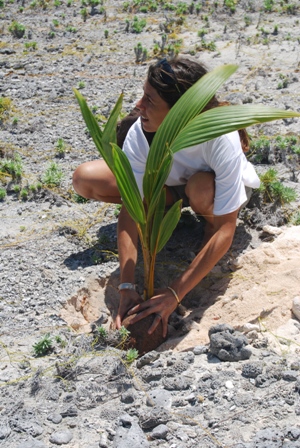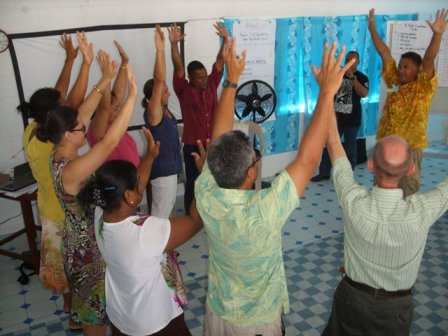
The 3rd Pacific Invasives Learning Network (PILN) meeting was held on Kiritimati Island, Kiribati, from 22 to 27 March 2012.
The week-long meeting was organised and facilitated by the Secretariat of the Pacific Regional Environment Programme (SPREP) and the Government of Kiribati.
Over forty participants arrived from 19 Pacific Island countries and territories to discuss the management and 
In addition to these key thematic areas of discussion, technical sessions were held on issues such as bio-control and aquatic invasives.
"Aquatic invasive species are important to Pacific countries because the ocean is our lifeline. Our coral reefs provide food for our families and any threat posed by aquatic invasive species should be taken seriously," 
"Participants recognise aquatic invasive species as an important issue for the region to address. However, they acknowledged that there is still a lot to learn about aquatic invasive species and recommended that initial surveys need to be undertaken in port areas to determine the extent of the problem," he adds.
Kiritimati Island is one of the main port entries to the Phoenix Islands Protected Area (PIPA). It is a special island that hosts one of the biggest nesting and breeding grounds of Pacific seabirds, which a few decades earlier was devastated by Pacific rats and feral cats.
Part of the week-long activities involved a field trip to some of the land-locked lagoons dotted around the island, which are Pacific seabird nesting and breeding areas, to see how the populations of seabirds have grown since the eradication of the rats and other pests that preyed on these native birds.
"The PILN meeting on Kiritimati was an opportunity to celebrate and showcase the hard work of the PILN teams in the Pacific Islands region," said Dr Skelton.
"It was also an opportunity to engage countries that are interested in forming national invasive species teams and be part of PILN."
 Participants engaging in group activities
Participants engaging in group activities
© Y. Yalap
The meeting was made possible through the financial support of the Fonds Pacifique, the Critical Ecosystem Partnership Fund administered by the Conservation International, SPREP, The Nature Conservancy and the Government of Kiribati. It was strongly supported by the Pacific Invasives Partnership – an invasive species working group of the Pacific Roundtable for Nature Conservation.
For more information, please contact Dr. Posa Skelton at [email protected]